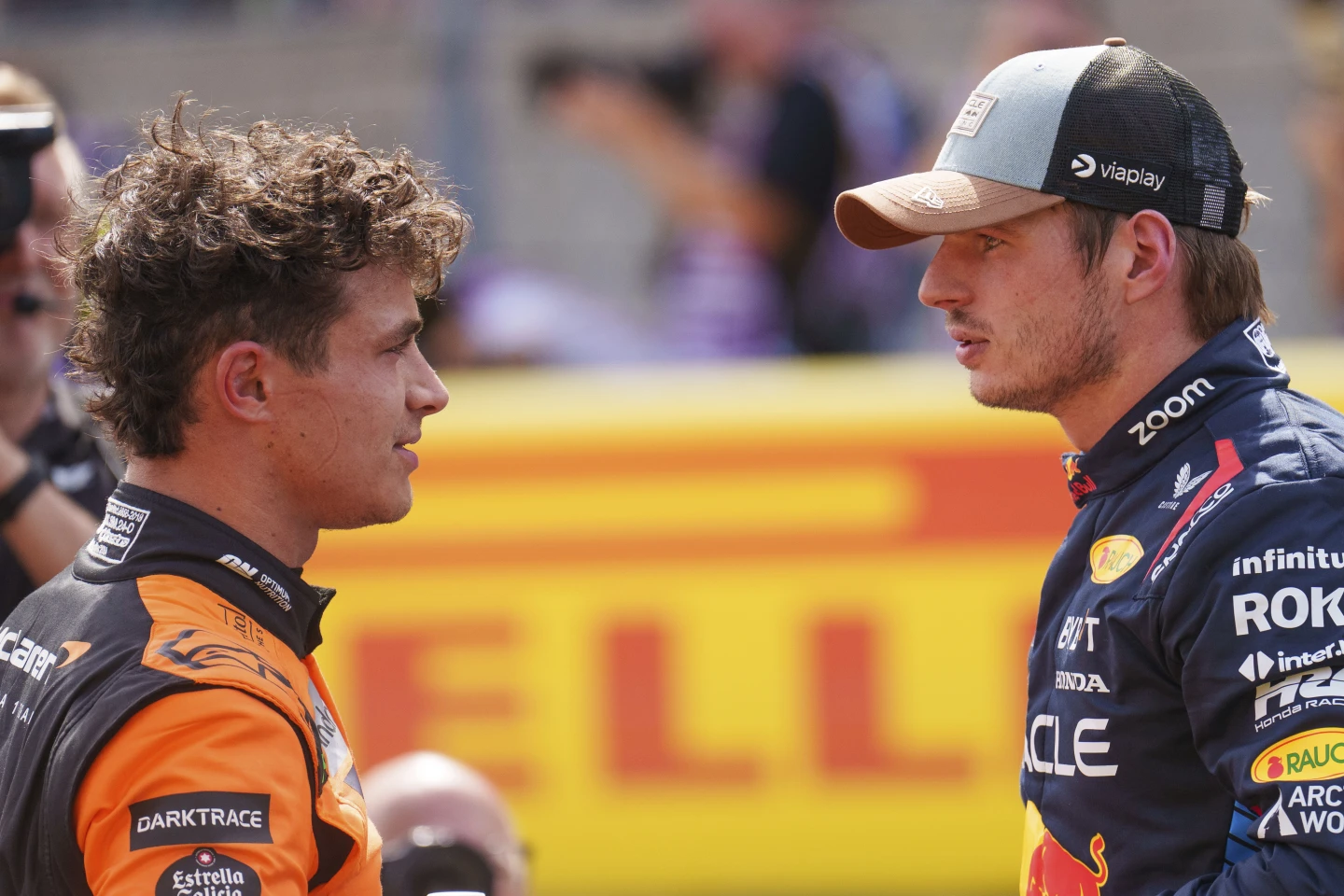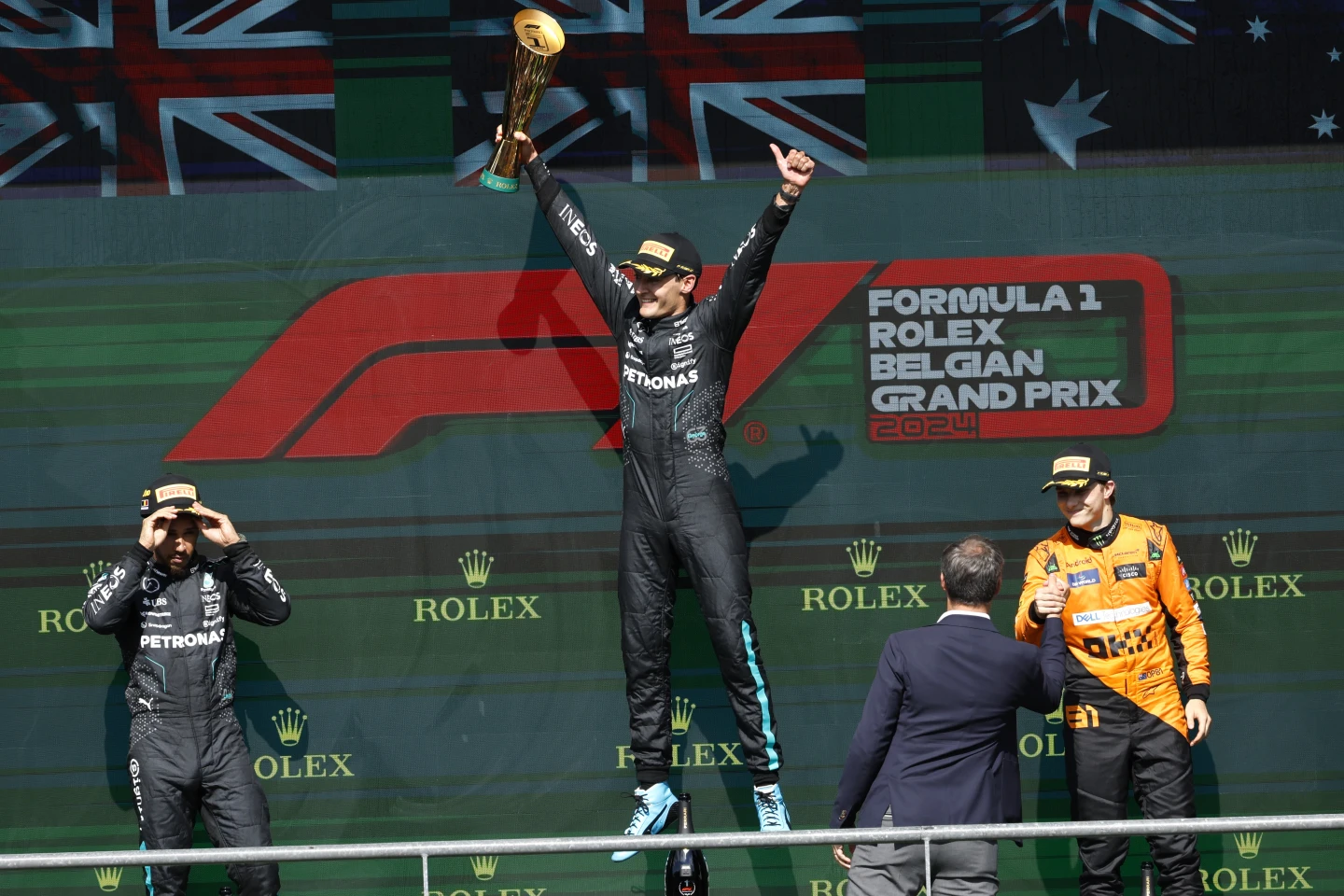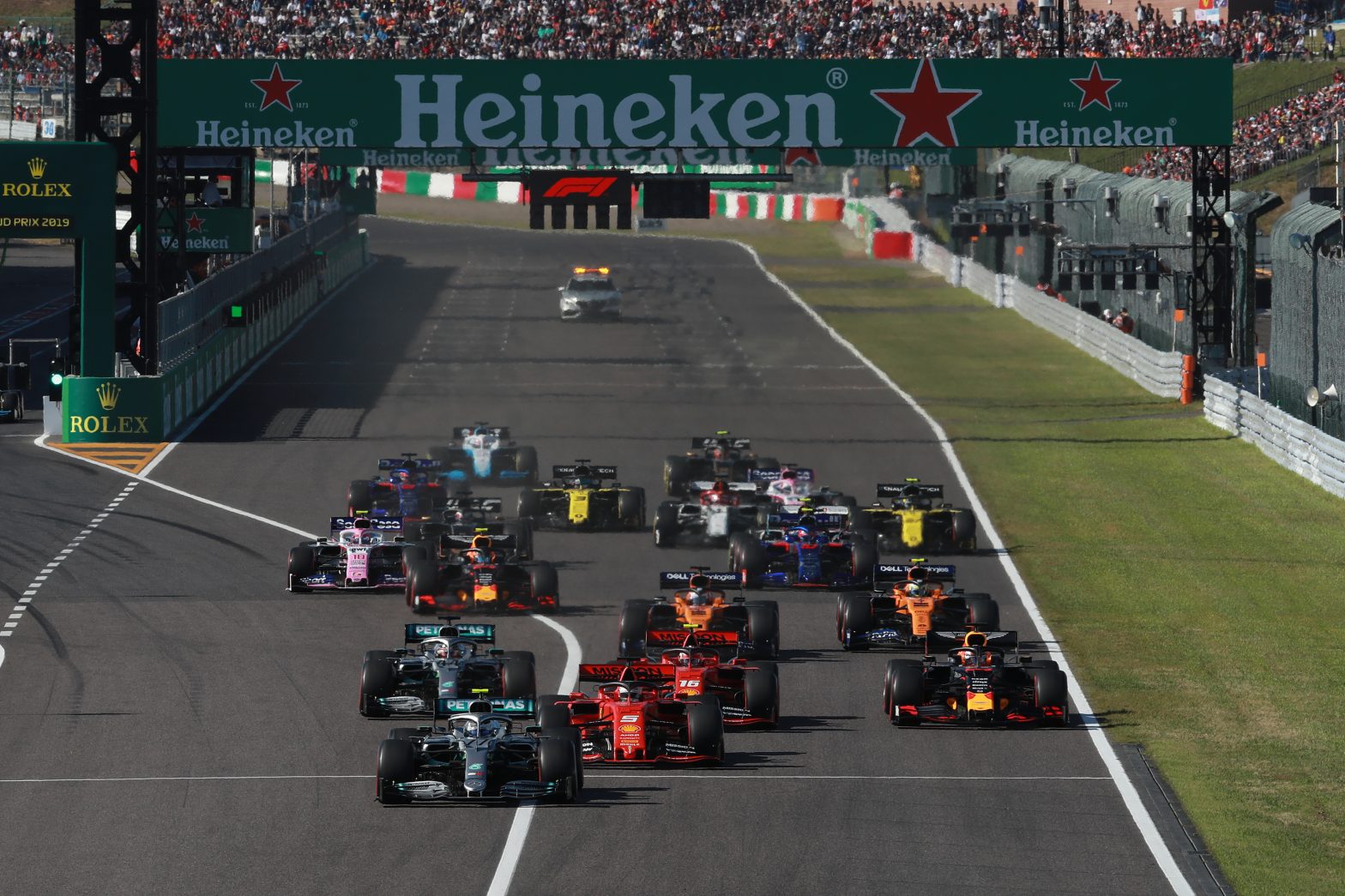To many motorsport fans, he is the authority, the one who makes the final call on the most debated moments in Formula One.
With his SkyPad, Anthony Davidson, a former F1 driver, analyzes key incidents and gives his verdict.
Davidson was doing just that last Sunday in Austin, explaining to the Sky Sports F1 audience Lando Norris’ controversial pass of Max Verstappen on lap 52, which significantly affected the podium at the US Grand Prix.
His detailed analysis and understanding of the stewards’ mindset led him to believe that while both cars went off the track, the McLaren driver was more at fault, making the five-second penalty fair based on previous cases.
The general reaction on X was positive, with many agreeing, saying, “Brilliant,” and advising anyone confused about the incident to watch his explanation.
Back in the UK, the 45-year-old wants to clarify that his opinion is not the final word, empathizing with the stewards, who were accused of bias by Mercedes boss Toto Wolff during the race.

“When I share my opinions, it’s just based on my 34 years of driving experience,” he explains. “It’s not meant to be the ultimate answer, and I’m not claiming to be an oracle.”
Davidson points out that he doesn’t hand out penalties and is surprised that people consider him the last word in discussions.
He acknowledges that his role can sometimes be “uncomfortable,” but emphasizes that he is just offering his opinion, and others are free to have their own.
“I would hate being a steward, I wouldn’t want that responsibility,” he adds. “I talk to many racing drivers, and we often have different views based on our own racing styles and how we perceived the moment.”
“It’s always tougher when you’re in the car. The drivers can’t pause the action, rewind, or look from another angle. They are in the moment. Everything happens so quickly, in the blink of an eye, and then it’s over.
“Whatever happens in that moment, you just move on. You set it aside and focus on getting the best result you can.
“Maybe later you’ll review it and analyze what happened, but it’s done, and you can’t change it. For the stewards, it’s a different situation. It’s very challenging.”

He goes on to explain that there are established rules that the stewards have agreed on with the drivers and teams.
“That’s something I think some people on the outside, who have never raced or who have in different types of racing, don’t completely grasp,” Davidson says.
“The stewards have essentially created a guideline, almost like a computer analyzing the situation, and they follow a checklist. Did this happen? Yes. Did that happen? No. Based on that, the result is X or Y.
“And when you look at it from their perspective—like the last incident in Austin—you can’t argue with it. The rules are written down and are clear.
“That doesn’t mean my racing instincts always agree with the moment, but I can see why the stewards make certain decisions based on their guidelines.”
What Davidson definitely supports is the stewards’ practice of making decisions during the race instead of letting a final judgment linger long after the race has ended.
“I’m happy it’s not like what happened in Mexico a few years ago,” he said, referencing the 2016 race when Verstappen lost his third-place finish just as he was heading to the podium. Sebastian Vettel was moved up to third, only to lose it later to Daniel Ricciardo.
“That was crazy; we can’t let that happen,” Davidson says. “Even worse would be if the final result is different from what the fans thought they saw during the race.
“I think fans can agree that making calls during the race is definitely better than spending your Sunday afternoon watching a race that ends up with a different result.”
Davidson has come a long way since his father introduced him to the sport as a child who loved F1.

“I grew up watching Murray Walker and James Hunt,” he remembers. “I would sit at home, sucking my thumb as a little kid, watching the grand prix on TV every Sunday.”
For his eighth birthday, he was taken go-karting, and he never looked back, reaching F1 despite “my family being normal” financially.
“I am proud of that,” says the man who raced 24 times in F1 for teams like Minardi, BAR, and Super Aguri before winning the World Endurance championship and later using the Mercedes F1 simulator.
He once mentioned that he probably wasn’t “nasty enough” to succeed in F1. Does he remember saying that?
“Inside the car I was, but outside probably not,” he acknowledges. “I was always a tough racer; any driver who raced against me would agree. But outside the car, maybe I wasn’t tough enough.
“It’s a very ruthless business, and if you’re not that way, it can be a sport that can consume you.
“It’s not that nice people can’t win in this sport—they definitely can. Once the visor was down, I became a different person. It almost felt like a superpower, being inside the car with my helmet on.”
